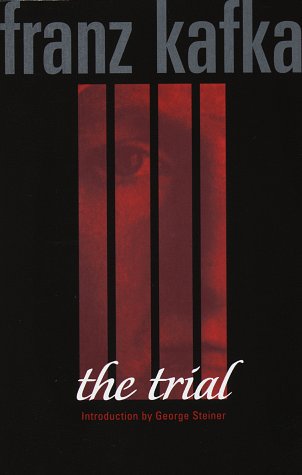Nick Pateras | The Trial
BOOK REVIEW
The Trial – Franz Kafka
An early representation of contemporary bureaucracy’s maddening workings
Until fairly recently, I was shamefully oblivious to Kafka’s esteemed status as a significant 20th century writer. Then two years ago I happened to meet someone in a bar in Philadelphia who was carrying The Trial around with him that Friday evening. Naturally this piqued my interest, and such was the lavish praise he heaped on the book, I made an instantaneous mental note to experience it for myself.
The edition I purchased began with an outstandingly erudite introduction from George Steiner, which heightened my anticipation not least by foreshadowing one of the novel’s key motifs, that ‘to live is to be sentenced for living’. Once I dove into the story itself however, I was surprised to find myself somewhat disengaged with its early chapters. Indeed, there was a period of many months where I let the book gather dust on my table: perhaps this was because I found the plot slow-moving, or Kafka overly verbose in describing what seemed to me to be unimportant passages. Excerpts from his diaries reveal that he found the writing process around this time tormenting and laborious, and we also now know that he never fully finished The Trial, never mind intending for it to be published.
"The right understanding of any matter and a misunderstanding of the same matter do not wholly exclude each other."
I eventually forced myself to take The Trial up again and on second taste I began to better appreciate its symbolism. At the outset protagonist Joseph K. is arrested by agents from an unspecified agency and summoned to court for an unspecified crime. He cannot gather details on the charges from anyone he encounters, yet they all seem to be familiar with his case and encourage him to take it seriously, even lending (paradoxical) counsel on how to approach clearing his name. The initial confusion soon devolves into a nightmare as the feeling of paralysis embroils K. and he meets others whose cases have lasted so long without progress that their lives have waned to the point of misery. By the book’s close I felt a vested interest in K.’s case.
The Trial is regarded as a token parable of bureaucratic excesses characteristic of a controlling administration. Its foresight resonates strongly against the contemporary maze of paperwork and systems seemingly intrinsic to every major corporation or government agency. I can now understand why its prophetic depth is so heralded and am glad to have read it first-hand, but I admittedly wouldn’t choose to reread it in full.
-NP, May 2016
